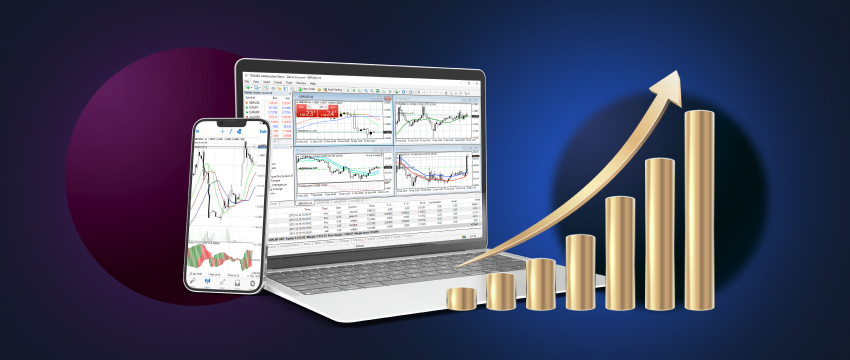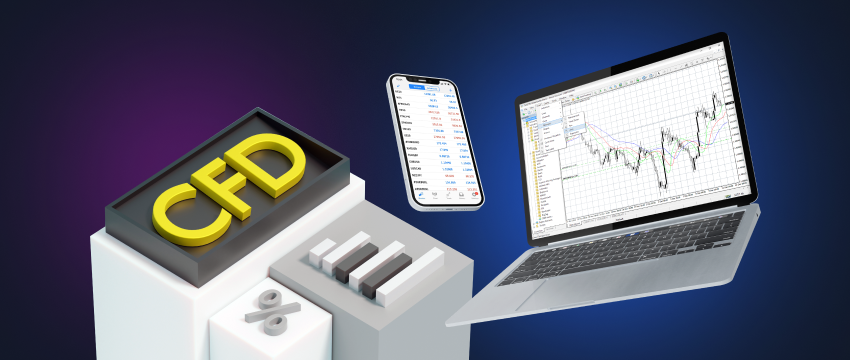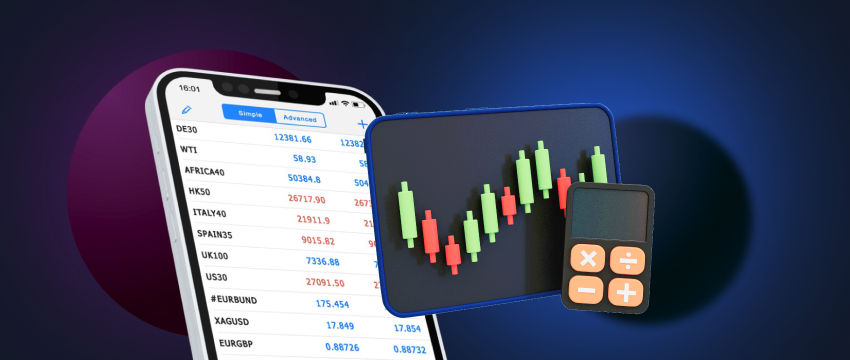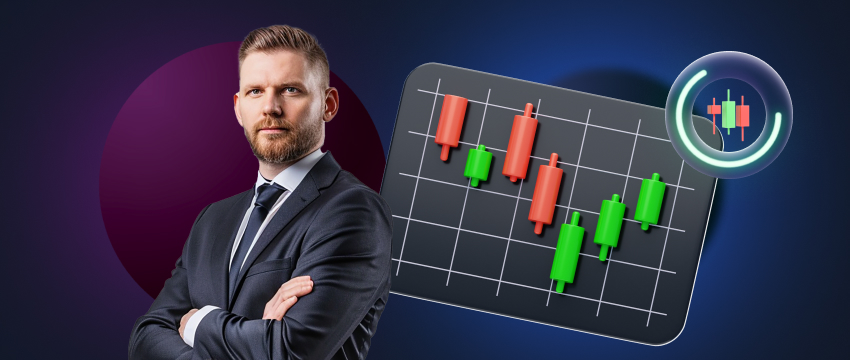To understand the fundamental differences between forex trading と CFD (Contract for Differences), let’s first take a look at what each is.
Forex trading
Forex trading refers to the exchange of one currency for another. In other words, it’s when a trader purchases one currency and sells another another. Currencies are traded in the foreign exchange market (forex market), the largest financial market in the world. Open 24/5, the trades that happen in the forex market impact everything, from inflation and corporate earnings to the price of clothing or the cost of food.
全て 外国為替 trading occurs over the counter (OTC), i.e., it is conducted online with no physical exchange. The forex market is decentralised in that no one central authority governs it. Instead, it is comprised of and overseen by an international network of banks and other financial institutions.
All forex trading is stipulated as a combination of the two currencies being exchanged, with each assigned a 3-letter code, e.g., EUR/USD, GBP/USD, USD/CHF, etc. The United States dollar is quoted as involved in most forex traded, followed by the euro. Other popular major currencies include the British pound, the Swiss franc, the Japanese yen, the Canadian dollar, the New Zealand dollar and the Australian dollar. A combination of these pairs accounts for 75% of all forex trading.

CFD trading
A CFD is a Contract for Difference, i.e., a financial contract that’s based on the price difference of an asset between entering and exiting a trade. The support varies and may include currencies, shares, commodities, and indices, among others. Traders typically go long or short on a particular asset.
CFDs are highly leveraged financial derivatives, increasing the potential for maximum gains. Further, the underlying asset is not owned by the CFD trader. However, if leveraged CFD trading is not properly managed, particularly during periods of adverse price fluctuations, exposure to substantial losses is likely.
CFD取引の仕組み
Investors use CFDs to speculate on whether the price of an underlying will increase or fall. In other words, they try to predict price movements, upwards or downwards.
Differences between CFD trading and forex trading
There are several differences between CFD trading and forex trading, which we’ll discuss here:
- CFD trading involves a variety of contracts covering a diverse range of markets. This includes indices, 株式, energy, currencies, 金属, cryptocurrencies, etc. This allows traders to create a diversified portfolio and capitalize on different market opportunities. In contrast, forex trading focuses exclusively on currency pairs.
- CFD trading is well-suited for various trading strategies, including day trading, swing trading, and long-term investing, due to its access to a wide range of assets and leverage. Forex trading is commonly used for short-term trading strategies due to its high liquidity and volatility. It is also popular among carry traders who exploit interest rate differentials between currency pairs.
- CFDs often offer higher leverage compared to forex. Consequently, traders can control more prominent positions with a smaller initial investment. Forex trading also provides leverage, but the levels are typically lower than those offered in CFD trading, the ratios of which depend on the country and regulations. However, as previously mentioned, while leverage may magnify potential profits, so too can it increase the risk of considerable losses.
- CFD trading and forex trading also differ by way of the factors that impact the various markets. Forex trading is largely influenced by geopolitical uncertainties, economic news and announcements, environmental disasters, war, large-scale employment shifts, and others. CFD trading is mostly influenced by the supply and demand of a specific commodity and industry shifts.

What similarities exist between CFD trading and forex trading?
While CFD trading and forex trading do differ, they also share some key similarities. For one, CFDs and forex are both traded in the OTC market. Secondly, neither CFD nor forex traders possess ownership of the underlying asset. Thirdly, the only cost of trading forex or CFDs is usually the spread.
Choosing a respected CFD broker
Regardless of whether you intend on trading forex only, or engage in CFD trading, you’ll need a broker who aligns with your trading objectives, skills and expertise. This requires the type of broker who offers you the tools required to become the best trader you can be. These might be educational resources to increase your trading knowledge and boost your skills. It also includes having the ability to pick from a range of trading accounts that best suit your needs.
Additionally, look for a CFD broker that offers competitive spreads, low commissions (if applicable), flexible leverage, and an easy-to-use trading platform for more successful trading outcomes. The forex broker should also deliver high-quality customer support across their communication channels, be this email, telephone or live chat. However, prior to selecting a broker to trade with, ensure you conduct thorough research to know exactly what you’ll be getting into.
Examine the broker’s website, read through their FAQs, and get a proper understanding of the terms & conditions that you’ll be required to adhere to. Take it one step further and read online reviews which offer crucial insights. Speak to other traders as well for more credible feedback.

In summary
It’s clear that both CFD trading and forex trading come with their own strengths and weaknesses. Deciding which route to take will typically depend on your tolerance for risk, preferred assets, and choice of trading strategy. Both markets offer opportunities for profit but involve substantial risks, and proper risk management is crucial for successful trading in either domain.
T4Trade is a powerful broker with a global client base of skilled traders. T4Trade provides many of the tools and functionalities required by a trader to make informed trading decisions. They offer many resources for continuous learning, including videos, webinars, seminars, Live TV, and informative blogs.
The T4Trade MetaTrader 4 platform also provides a robust system for trading, with some of the most in-demand features for trading successfully. This includes advanced technical analysis tools, automated trading, Expert Advisors, innovative charts, and so much more.
Disclaimer: This material is for general informational & educational purposes only and should not be considered investment advice or an investment recommendation. T4Trade is not responsible for any data provided by third parties referenced or hyperlinked, in this communication.




